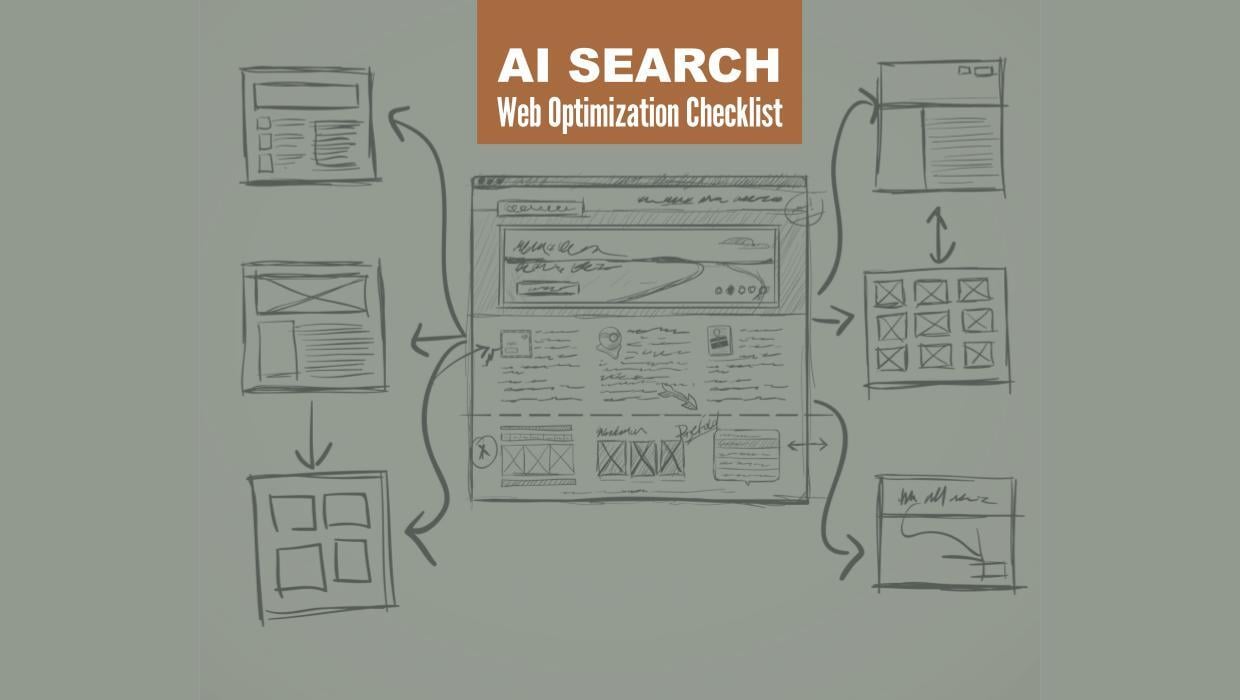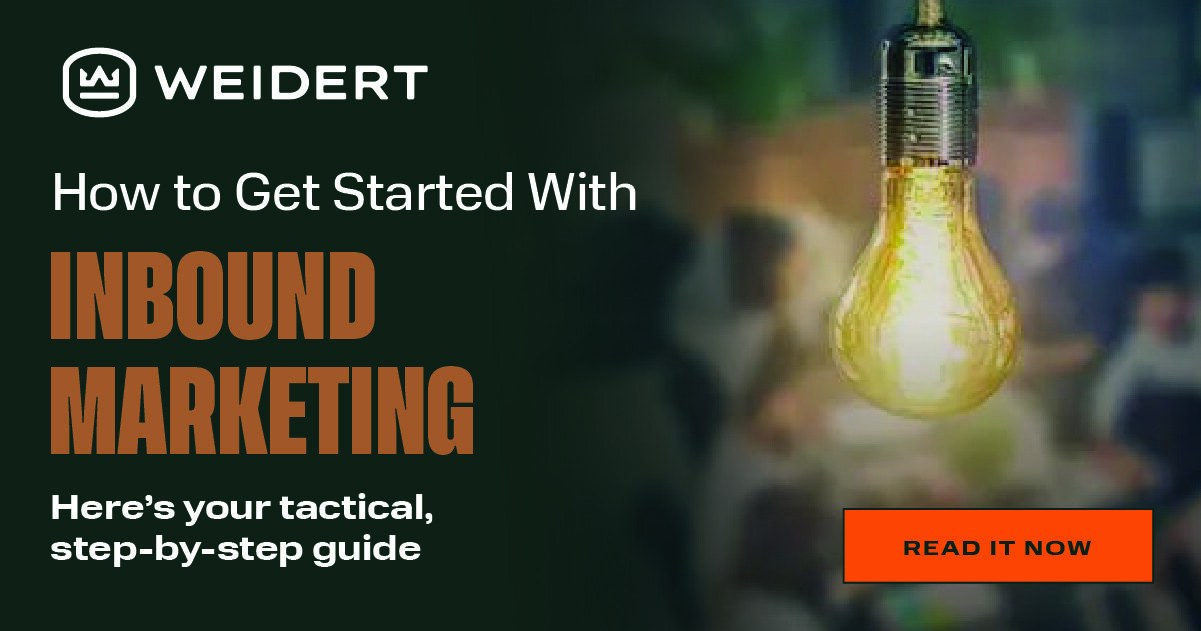7 INBOUND MARKETING SKILL SETS YOUR TEAM NEEDS FOR ONGOING SUCCESS
Written by
We often find ourselves in conversations with senior marketers and leadership teams of industrial and supply chain companies considering taking the plunge into inbound marketing. These are people who accept the basic premise of inbound but are struggling to envision successfully implementing an effort that might seem too ambitious for their internal team’s capabilities.
To launch and sustain an inbound program, you'll need help with:
- Planning, creating, and curating engaging content, including video
- Developing and executing an SEO strategy
- Creating an effective user experience (UX) on your website
- Optimizing your website for conversions (CRO)
- Publishing timely social media content
- Strategizing and building lead nurturing campaigns
- Continuously analyzing and improving all this
You can see by this list, inbound marketing can be a huge undertaking. And it has to be done well by a skilled team to be effective.
First Things First: Inbound Marketing Goals
Before we talk about which team members are going to do what to support inbound, let’s get clear on how to define the goals an inbound program can help you achieve.
Align Sales and Marketing Around Your Business Goals
Surprising as it sounds, many industrial and professional service businesses aren’t guided by well-articulated growth goals. Decision makers know they want to grow revenue and improve profitability, but by how much, how fast, and how will the goals be achieved? Marketing goals are even less likely to be well-defined. Maybe you find yourself in a similar situation.
Business and marketing goals should be objectively connected in a way that provides everyone involved with a good view of the importance of their contributions. You can play with the math around growth percentages and revenue streams to arrive at multiple combinations of growth in each area that will get you to your target. However, defining meaningful marketing goals that can be monitored on a weekly basis for progress is far more productive.
The key is breaking goals down into the number of new customers needed based on your pipeline conversion rates, the number of leads needed to close the projected number of new customers, and how much inbound traffic you'll need to attract to deliver the leads needed.
Define Your Target Customer
Since top-of-the-funnel (ToFu) inbound marketing focuses on attracting the best prospects through authentic content, you have to truly know your target so your content and context speaks directly to them. That means first getting specific with your ideal buyer profile, outlining the industries, company types, size, and geographies.
Then, dig a layer deeper to the people within those companies who are decision-makers or key influencers: job titles, functional areas, responsibilities, and most importantly their needs and pain points. If you can define your target with that level of detail, you're 70% of the way to a completed persona, turning the description of your target into a “living” prototype of the perfect customer.
RELATED: MAP YOUR BUYER'S JOURNEY FOR INBOUND MARKETING (WORKSHEET & TEMPLATE)
Manage Leads Effectively
An effective inbound approach will dramatically change your sales pipeline, but not all leads are equal… or worth pursuing. Industrial marketers and salespeople have to prioritize leads based on conversion potential. Some leads can be immediately disqualified. Others can be categorized as marketing qualified leads (MQL) because they fit your ideal buyer profile and target requirements, and have shown interest in your product or service.
Segmenting MQLs based on what you know about them — their company information, their role, and their demonstrated intent — may reveal a perfect fit that is ready to purchase your products or engage with your services, which transitions them to sales qualified leads (SQLs).
Align expectations with your sales team by creating a service level agreement in advance that defines what constitutes an MQL or SQL, how those will be assigned to sales team members, and what they are responsible to do to close the lead. Never forget that these prospects found you, told you they need what you sell, and weren't shy about signaling that they're ready to buy.
RELATED: A GUIDED TOUR OF SALES & MARKETING SERVICE LEVEL AGREEMENTS
Commit to Learning From Analytics
Do you know what's your best source of traffic? Where are the highest quality referrals coming from? What blog topics and headlines seem to get the most click throughs? Which landing pages have the highest conversion rates? Answering these questions as fast as data is available means you can increase the velocity of your inbound marketing and business results.
Inbound marketing provides a rich assortment of real-time data every day that details what's working, what's not, and what could be adjusted to improve performance and results.
RELATED: HOW TO IDENTIFY & TRACK INBOUND MARKETING METRICS THAT MATTER
Inbound Marketing Roles: Who Does What (and Why)
Now that your business growth initiatives are clearly defined, a leads management strategy in place, and your sales and marketing teams aligned, you’re ready to identify the team members and capabilities that will be key to achieving your inbound goals.
These are the distinct skill areas needed within your inbound marketing team structure:
- Marketing strategist. Someone on your team needs to "own" marketing strategy and be able to see inbound as an integrated piece of the big picture. The ability to move swiftly and comfortably from 40,000-foot concepts to granular details is key
- Creative copywriter. Since content is the currency of inbound, you need both the capability and capacity to create large quantities of quality content: energetic and informative blog articles, compelling social media posts, hard-hitting web, landing page, and email content, and advanced content in multiple forms (video scripts, webinar outlines, eBooks, tipsheets, etc.). Your content creator must possess exceptional grammar, writing and research skills, a curious mind (particularly about your industry, your prospects, and your customers), and the ability to interview subjects; he or she should also be able to lead brainstorming sessions
- Social media marketing/digital advertising specialist. Social media is your content distribution and promotion channel, and also the best off-site way to engage with prospects. You’ll need someone (or multiple people) who have the skills to create, execute and manage social media plans, implement comprehensive digital advertising campaigns, and remain well-versed in emerging tools, platforms, and capabilities
- Search marketing specialist. To turn your inbound efforts into improved online visibility, your team should include someone who understands the intricacies of effective SEO such as defined keywords, meta data, link-building strategies, etc., and of paid search and social media optimization; he or she will also need to stay on top of ever-changing search algorithms
- Web and graphic designer. Effective inbound marketing means your website, social media presence, and all your distributed and promoted content become dramatically more visible to a growing pool of prospects. Web and graphic design talent on the team is essential to ensure you're always putting your best foot forward in every public dimension of your company. Also, with the explosion of visual content a designer is a must to create visual content that stands out
- Videographer. Content is increasingly visual, and leveraging video can sway buying decisions for up to 90% of customers. Conversion rates can spike to 80% when video is included on landing pages. Having a skilled videographer to concept, shoot, edit, and post video footage is an inbound staple
- Inbound marketing software expert. Great tools are far more powerful in the right hands. Inbound software — including marketing automation, CRM, sales automation, CMS, SEO, and analytics tools — requires dedicated users to create the greatest performance leverage, and to make strategy adjustments based on applying readily available data and analytics
Why An Inbound Agency Partner Makes Sense
It’s typically most effective for companies, at least when first setting out on their inbound journey, to take advantage of the expertise of an agency dedicated to inbound marketing for complex industries. Here are a few reasons why:
- Speed. You can begin moving immediately toward your goals. That means you're that much closer to enjoying the results, and that much more likely to get there before your competitors
- Overhead. You're not taking the risk of adding headcount before you're completely convinced of the value of inbound marketing
- Skills transfer. Your people are benefiting from the ongoing transfer of advanced marketing skills that will foster and grow internal capabilities at a pace that’s ideal for your company’s ongoing needs and your team’s comfort level
Caution Ahead
The biggest mistake a company can make when diving into inbound marketing is to underestimate the amount and quality of work that needs to be done. We've seen too many organizations short-change their program by assigning critical responsibilities to someone who's not skilled to fulfill them. Not doing the work necessary in terms of creating and publishing content, promoting that content, and putting smart nurturing elements in place to keep prospects engaged can be detrimental — and it can also be avoided by working with an experienced inbound agency partner.
Learn more about the power and potential that inbound marketing and an inbound agency partner can cultivate for your company in our Step-by-Step Guide to Inbound Marketing.
Subscribe To Our Blog
Information. Insights. Ideas. Get notified every time a new Weidert Group blog article is published – subscribe now!
You May Also Like...

Search Engine Optimization
Optimize Your Industrial Website for AI Search

Marketing Technology
Why Unified Data Efforts Fail (and How Manufacturers Can Fix It)

Search Engine Optimization
How Falcon Rebuilt Industrial AI Search Visibility in 2025
Accelerate Your Growth with
Weidert Group
If you’re ready to explore a partnership, request a personalized consultation with our team.

